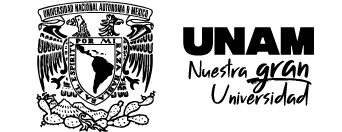Versión al español de Miranda Martínez Bonfil
El PdP agradece a drift agencia literaria la autorización para reproducir los siguientes poemas.
La fotografía como consecuencia*
En la agitada noche en que el barco Estonia se hundió,
la gente usó los flashes de sus cámaras
como llamado de ayuda ante
las puertas del mar que se cerraban.
Al final, algunos sobrevivientes descubrieron
que habían tomado fotografías de los últimos momentos
antes de que el barco se hundiera.
Fotografías que no son fotografías
sino rastros de la necesidad de ver.
Una es de un hombre sentado en el casco
justo antes de que éste se deslizara hacia abajo.
Sin esperar.
Lo que venía vendría.
Aquella quietud suya,
el horizonte escorado,
el futuro allí
en la pendiente de su hombro.
La fotografía contiene el accidente del traslado,
el antes y el después.
En la fotografía vamos hacia atrás
y él viene hacia adelante
a donde la muerte había llegado.
* 852 personas murieron cuando se hundió el barco Estonia en el Mar Báltico el 28 de septiembre de 1994.
The Photograph as Consequence*
On the heaving night the ship Estonia sank,
people used the flashes of their cameras
to signal for help against the closing
doors of the sea.
In the end, some of the survivors found
they had taken photographs of the last moments
before the ship went down.
Photographs that are not photographs
but traces of the need to see.
One is of a man sitting on the hull
just before it must have slipped below.
Not waiting.
What was coming was coming.
The stillness of him,
the tilting horizon,
the future there
in the slope of his shoulder.
The photograph contains the accident of translation,
the before and the after.
In the photograph we go back
and he comes forward
to where death had arrived.
*852 people died when the ship Estonia sank in the Baltic Sea on 28 September 1994.
Aliento
El lenguaje es aliento,
es tacto, es baba,
es el silencio antes de hablar.
Ruso
Una mujer aprendiendo ruso describe
la nueva inclinación de su cabeza,
su pecho, sus manos,
la tensión de su labio superior
como picaduras de abeja alrededor de la boca,
los cambios musculares de su lengua
una invasión desde adentro.
Árabe
Te enseño a decir la primera letra de mi nombre,
un sonido entre la g y la h,
para el cual no hay letra en inglés.
Inhala,
toma un sorbo de agua,
exhala.
El sonido del aliento dejando la garganta
es el comienzo de mi nombre.
Breath
Language is breath,
is touch, is spit,
is the silence before speaking.
Russian
A woman learning Russian describes
the new inclination of her head,
her chest, her hands,
the tightening of her upper lip
like bee stings around the mouth,
the muscular changes in her tongue
an invasion from the inside.
Arabic
I teach you to say the first letter of my name,
a sound between g and h,
for which there is no letter in English.
Breathe in,
take a sip of water,
breathe out.
The sound of breath leaving the throat
is the start of my name.
La pluma
Tres días antes de que mi padre muriera
perdí la pluma plateada con mi nombre en ella,
un regalo de mi tía por mi cumpleaños veintiuno
que había conservado por casi diez años.
Ese día, supervisando estudiantes en Khayelitsha
que colgaban un aro de baloncesto, regresé a casa
para pedirle prestadas sus herramientas.
Caminamos alrededor del garage y yo taché
la escalera, el taladro, los clavos y el desarmador de mi lista,
y él sugirió que agregara un martillo y un nivel.
En algún momento entre apilar y empacar
el coche, perdí mi pluma sin siquiera notar
que se había resbalado de mi mano.
Cuando me fui a casa tarde ese día,
negocié con la pérdida como siempre lo hago,
no yendo de regreso al garage a buscar la pluma
en caso de que no estuviese allí,
sino manteniendo su ausencia inconclusa,
para que pudiera regresar algún día.
En tres días
las secuencias imposibles de la muerte.
Repasé
todo lo que dijimos ese día
y los años en que no hablamos
y la reconciliación, casi sin palabras,
cuando caminamos el uno hacia el otro con la mirada gacha
y lloramos mientras nos abrazamos.
La noche que murió
sentí la plenitud de la pérdida,
de la ausencia sin negociación,
y sin embargo también lo que aún estaba allí,
ese moverse el uno hacia el otro,
sin mirar.
The Pen
Three days before my father died
I lost the silver pen with my name on it,
a twenty-first birthday gift from my aunt
I’d kept for almost ten years.
That day, supervising students in Khayelitsha
putting up a netball hoop, I came home
to ask to borrow his tools.
We walked around the garage and I ticked
off the ladder, drill, nails and screwdriver on my list,
and he suggested I add a hammer and level.
Somewhere between stacking and loading
the car, I lost my pen without even noticing
it had slipped from my hand.
When I went home late that day,
I negotiated with loss as I always do,
not going back to the garage to look for the pen
in case it wasn’t there,
to keep its absence incomplete
so it could come back one day.
In three days
the impossible sequences of death.
I went back
over everything we’d said that day
and the years when we didn’t speak
and the reconciliation, almost wordless,
when we walked towards each other with our eyes down
and wept while we hugged.
The night he died
I felt the completeness of loss,
of absence without negotiation,
and yet what was still there,
that moving towards each other,
without looking.
* Textos pertenecientes a A Hundred Silences, Ciudad del Cabo, Kwela Press, 2006.



